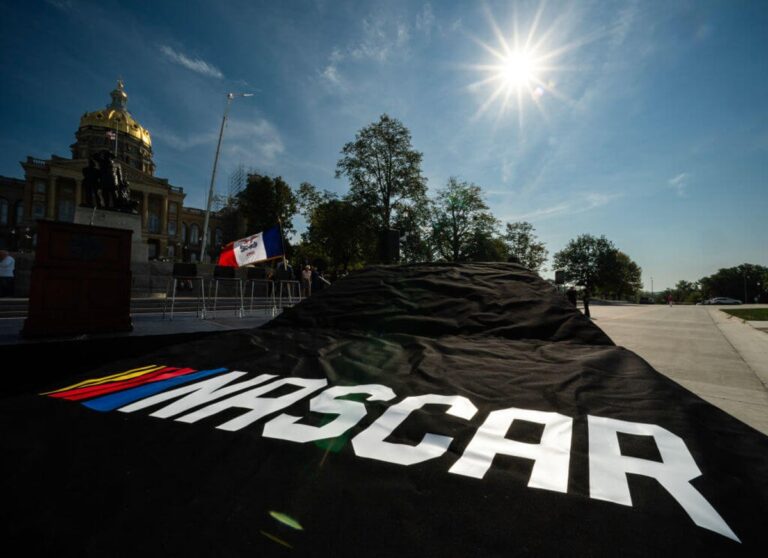NASCAR has accused a district court judge of making numerous errors leading to what the company claims is an incorrect decision in the ongoing antitrust lawsuit brought by two race teams, Front Row Motorsports and 23XI Racing, co-owned by Michael Jordan.
In December, Judge Kenneth Bell granted 23XI Racing and Front Row Motorsports a preliminary injunction, allowing them to race as “charter” teams for the 2025 season while the lawsuit plays out. A 68-page brief filed Wednesday appealed that ruling, with NASCAR saying Bell’s decisions were “riddled with errors” and argued for an appeals court to overturn Bell’s ruling.
“The district court’s injunction orders flout federal antitrust law; misapply the established rules governing the use of preliminary injunctions; ignore unrebutted, legally significant evidence; and have sweeping implications for NASCAR’s 2025 Cup Series season,” NASCAR’s attorneys wrote in the brief. “Any one of the district court’s many errors warrants reversal.”
Lawyers for 23XI Racing and Front Row Motorsports declined to comment.
The argument began when 23XI Racing and Front Row Motorsports were holdouts last fall after the rest of NASCAR’s Cup Series team owners signed a new charter agreement, which allows guaranteed entry and payouts from each race.
After refusing to sign the agreement, 23XI and Front Row brought a federal antitrust lawsuit and ultimately convinced Bell to grant the preliminary injunction that would permit them to race as charter teams in 2025 while the case is litigated.
But NASCAR does not want to be forced into a business arrangement with two organizations it views as harming the sport, and that it could potentially file a countersuit against within the next month. NASCAR asked the appeals court to reverse Bell’s ruling and force 23XI and Front Row to run as “open” (non-charter) teams and return the money they receive from their current charter status.
In the brief, NASCAR laid out several reasons for why Bell got his decision wrong. Among them:
- NASCAR claimed Bell granted the injunction to maintain the status quo since the teams had previously been charter teams, but NASCAR said it was being forced to give the teams “benefits of a contract they rejected and NASCAR subsequently withdrew.”
- The preliminary injunction was centered around removing a release provision teams would have had to sign to waive any antitrust claims, but NASCAR said its release was a “garden-variety contract provision” that has held up in courts repeatedly.
- NASCAR said precedent prohibits the court from compelling NASCAR “to do business with its litigation adversaries under terms they are actively contesting as anticompetitive in this litigation.”
As for the monopoly claim, NASCAR said it was not true because NASCAR has “consistently faced competition” from other racing series like Formula One and IndyCar as well as competition with other sports and entertainment properties “for partnerships and investment dollars.”
The appeals court could hear oral arguments in the case during the first week of May.
Required reading
(Photo: Jay Biggerstaff / Getty Images)


